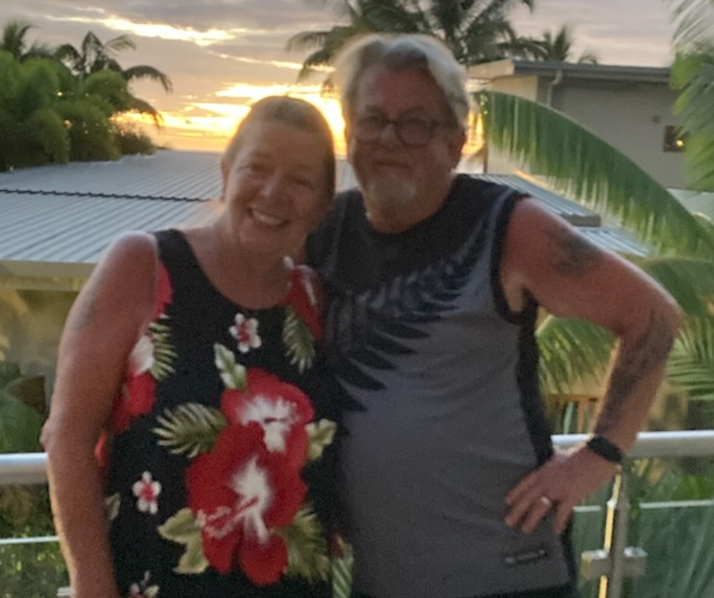With the finish line nearly in sight it is time to reflect and even celebrate my 40-plus years as a nurse.
At the age of 19, I made the decision to enter the nursing workforce, initially as a nurse aide, then onto completing my training and gaining my qualification as an RN.
‘I can remember the shock, if not horror, on my father’s face when I told him about my decision to become a nurse. My old man was in the army.’
I can remember the shock, if not horror, on my father’s face when I told him about my decision to become a nurse. My old man was in the army. He thought I was going to follow in his footsteps as a many young men my age did back then.
I can recall friends that I went to school with questioning the decision and asking why I did not want to build houses or fix cars. To be honest none of the trades really did it for me, as I did not aspire to live in a workshop or on top of a roof in winter.
Nursing was a choice made by a workmate of mine at the time. I was working in a factory filling in time before my planned big OE. The chap I was working alongside saw how disinterested I was in what we were doing and suggested that I consider nursing. The mere thought had never crossed my mind but, when the suggestion was made it intrigued me. I thought about a job where I could help others which stimulated the process of further investigation.
Within several weeks I had an interview and began working as an assistant in a psychopaedic facility at Mangere Hospital in South Auckland. For those not familiar with the term psychopaedic it was a discipline that specialised in the care of persons with an intellectual disability.
I recall on day one being ushered to the ward by a male supervisor and introduced to a female nurse about the same age as me. She took me around the ward and showed me what is expected of a nurse aid. At this particular hospital, there were probably 200 female staff and about 12 males.
Much to my delight, I married this young woman several years later and we had three children. Both of us remain in the profession to this day. After several years, I completed my hospital training so I could at least have a say in the direction of the care and treatment of those we served.
Other than a two-year break in the late 1980s I have always worked as a nurse. Once Mangere Hospital closed, I worked in the community supporting those who had considered Mangere Hospital their home. Memories of those times are mixed. I recall how grossly under-resourced we were and how few nurses were charged with the responsibility of caring for far too many souls, all of whom needed total care.
I also reflect on the comradery of the people I met who also choose to dedicate their lives to working with people with profound disabilities. Sacrifices were many when I first started as a nurse. I could no longer play competitive sport as the roster made my availability sporadic at best. I lost contact with people I grew up with and soon found that being invited to occasions such as 21st birthdays were few and far between due to my work hours.
As the years passed, I tried many different roles within nursing and even retrained as a registered nurse in the mid-2000s. I finally settled into psychiatry as it gave me the opportunity to see people gaining wellness through their recovery journey. I got to know the people that used the service very well, as many would come to our attention multiple times over the years.
‘Mental health also involved no blood which is a bonus because I am not great when it comes to serious injury and I definitely do not like people dying around me.’
As a student on both occasions that I trained I needed to complete placements at general hospitals and saw people pass away. Most saw this as an occupational reality however for me it had much more of an impact. I felt for the families that had lost a loved one hence my decision to specialise in mental health.
Within my time as a mental health nurse, I have done much. I made a point of exploring opportunities and applied for many roles, including, being a manager and a charge nurse. I have always worked in acute services which I find rewarding and varied with no day being the same.
I took an opportunity to apply my skills in the remote outback towns of Australia to see if I could help in towns where there is a huge lack of skilled staff. Over the last eight years or so I have worked in the home-based treatment team which provides interim support for those in crisis up until the acute nature of their presentation has been resolved.
In 2024, I turned 65 and planned to leave the service in April of 2025.
However, while away on holiday my wife and I met a couple who had recently retired and once aware of our plan, strongly encouraged us to think it over. They suggested that although they were looking forward to their golden years, they found not working a challenge. They talked about loss of purpose and a sense of emptiness. My wife looked at me and seeing the expression on her face, I agreed to wait another six months or so.
The funny thing about the coming of age is that well before one is due to leave you really don’t give it much thought other than to say I can’t wait to retire. It is not until the curtain is starting to close that you realise that you are no longer required and that you are the next cab off the rank to part this world or even worse, need care yourself. Although, and I hope that this is many years away for the wife and I, it is the reality of the aging process.
We plan to travel, health allowing, however, this is not sustainable for the long term. My wife loves spending time in the garden so she will be right for the first hour of every day. In my case, I share no such passion so I need a reason to get up in the morning. I am considering volunteer work to fill in a few days of the week but what scares me is what then.
‘It will be sad to say goodbye to a profession that we have endured so many years.’
A job that has provided me with so many good memories. The people I have met on my journey and the folk I have supported and helped along the way. From a naive yet passionate young man to a senior citizen considered old by many that bears the wrinkles of someone that has been around longer than most.





